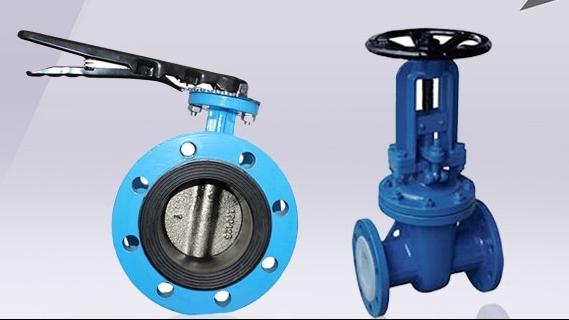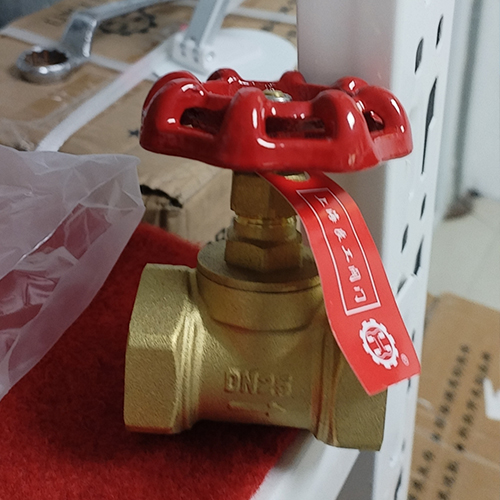- 良工閥門:止回閥的結(jié)構(gòu)與特點(diǎn) 2025-09-18
- 良工閥門:截止閥和閘閥選擇哪個(gè)更合適? 2025-09-13
- 良工閥門:氣動(dòng)高溫球閥的維護(hù)與保養(yǎng) 2025-08-30
- 閥門在食品包裝機(jī)械中的自動(dòng)化控制! 2025-08-18
- 法蘭蝶閥和夾蝶閥有什么區(qū)別? 2025-08-11
- 良工閥門:防火防靜電球閥介紹 2025-08-09

閥門泄漏:只是麻煩還是嚴(yán)重的問(wèn)題?滬工閥門廠行業(yè)經(jīng)驗(yàn)表明,安裝在工業(yè)資產(chǎn)中的閥門有 5-10% 發(fā)生泄漏,1-2% 的閥門造成了 70% 的總損壞。閥門泄漏會(huì)導(dǎo)致能源損失、工藝產(chǎn)品污染、計(jì)劃外停機(jī),在壞的情況下,還會(huì)導(dǎo)致健康和安全問(wèn)題以及環(huán)境污染。多年來(lái),未檢測(cè)到的泄漏可能導(dǎo)致六位數(shù)范圍內(nèi)的損失。那么企業(yè)如何才能避免這些風(fēng)險(xiǎn),及早識(shí)別泄漏閥門并計(jì)算泄漏率呢?
Valve leakage: just a problem or a serious one? The industry experience of Shanghai Industrial Valve Factory shows that 5-10% of valves installed in industrial assets experience leakage, and 1-2% of valves cause 70% of total damage. Valve leakage can lead to energy loss, process product contamination, unplanned shutdowns, and in severe cases, health and safety issues as well as environmental pollution. Over the years, undetected leaks may result in losses within the six digit range. So how can companies avoid these risks, identify leaking valves early, and calculate leakage rates?、
如今,滬工閥門廠不同的方法用于閥門檢查,常見(jiàn)的是基于超聲波或聲發(fā)射的檢查設(shè)備。聲發(fā)射測(cè)試是檢測(cè)閥門泄漏的理想選擇。其原因是所需的壓差低(低于 1 bar)、對(duì)環(huán)境噪聲的穩(wěn)健性、無(wú)需拆卸閥門或干預(yù)過(guò)程以及檢測(cè)小泄漏的能力。泄漏的大小取決于介質(zhì)的粘度和壓差。在過(guò)去的幾十年里,聲發(fā)射在閥門檢測(cè)中的應(yīng)用取得了長(zhǎng)足的發(fā)展,歐洲和全球標(biāo)準(zhǔn)已經(jīng)實(shí)施(例如 ISO 18081)。到目前為止一切都很好,但是識(shí)別泄漏閥門真的那么容易嗎?
Nowadays, Shanghai Valve Factory uses different methods for valve inspection, commonly based on ultrasonic or acoustic emission inspection equipment. Acoustic emission testing is an ideal choice for detecting valve leaks. The reason is the low required pressure difference (less than 1 bar), robustness to environmental noise, no need to disassemble valves or intervene in processes, and the ability to detect small leaks. The size of the leak depends on the viscosity and pressure difference of the medium. In the past few decades, the application of acoustic emission in valve inspection has made significant progress, and European and global standards have been implemented (such as ISO 18081). So far everything has been good, but is it really that easy to identify leaking valves?
滬工閥門廠告訴你已經(jīng)與面臨這個(gè)問(wèn)題的不同行業(yè)的不同公司進(jìn)行了交談。雖然聲發(fā)射是閥門檢測(cè)的通用標(biāo)準(zhǔn),檢測(cè)設(shè)備也很容易買到,但在實(shí)踐中,企業(yè)仍然在以下幾點(diǎn)上苦苦掙扎:滬工閥門廠告訴你現(xiàn)在正在采取一種新方法,將已建立的聲發(fā)射技術(shù)與數(shù)字化措施相結(jié)合。閥門通過(guò) RFID 標(biāo)簽(或 QR 碼)進(jìn)行識(shí)別,并通過(guò)資產(chǎn)管理系統(tǒng)訪問(wèn)有關(guān)過(guò)程的相關(guān)數(shù)據(jù)。滬工閥門廠告訴你指導(dǎo)操作員完成檢查過(guò)程。根據(jù) ISO 18081 自動(dòng)生成報(bào)告。人工智能數(shù)據(jù)庫(kù)的不斷發(fā)展將使公司能夠確定損害的程度(例如泄漏的大小)。滬工閥門廠告訴你期待更多的旅伴在旅途中,讓維修人員更輕松地進(jìn)行閥門檢查。
Hugong Valve Factory has informed you that they have had conversations with different companies from various industries facing this issue. Although acoustic emission is a universal standard for valve testing and testing equipment is easily available, in practice, companies are still struggling with the following points: Shanghai Valve Factory tells you that it is now adopting a new method to combine established acoustic emission technology with digital measures. Valves are identified through RFID tags (or QR codes) and access relevant process data through asset management systems. Hugong Valve Factory tells you to guide the operator to complete the inspection process. Automatically generate reports according to ISO 18081. The continuous development of artificial intelligence databases will enable companies to determine the extent of damage (such as the size of leaks). Hugong Valve Factory tells you to look forward to more travel companions on the journey, making it easier for maintenance personnel to conduct valve inspections.
以上的精彩內(nèi)容來(lái)自:上海良工閥門山東銷售處更多精彩內(nèi)容請(qǐng)點(diǎn)擊我們的網(wǎng)站查看更多:http://www.zscjzm.com
The above exciting content comes from: Shanghai Lianggong Valve Shandong Sales Office. For more exciting content, please click on our website to view more: http://www.zscjzm.com
熱銷產(chǎn)品: 執(zhí)行驅(qū)動(dòng)裝置 通用工業(yè)閥門 冶金工業(yè)閥門 水利水務(wù)閥門 石油化工閥門 電力電站閥門 核電軍工閥門


【本站圖片均由網(wǎng)站所有方提供,部分圖片來(lái)源于網(wǎng)絡(luò),如無(wú)意中侵犯了某媒體或個(gè)人的知識(shí)產(chǎn)權(quán),請(qǐng)來(lái)信或來(lái)電告之,本網(wǎng)站將立即刪除。】